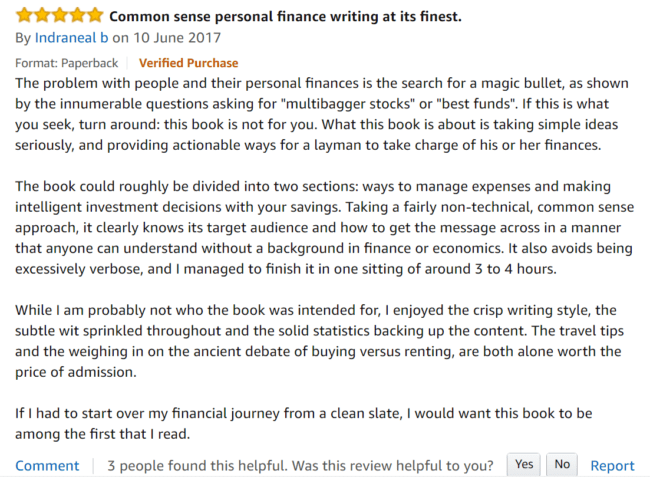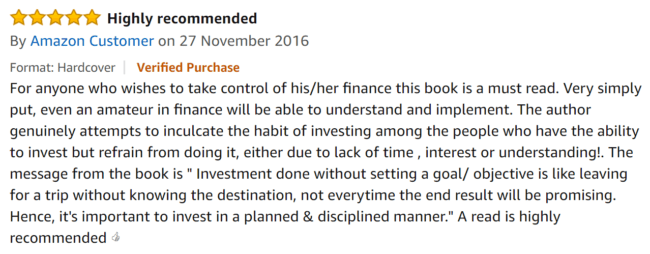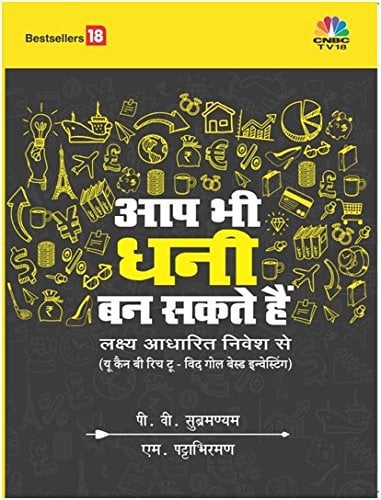Last Updated on October 8, 2023 at 1:44 pm
Under certain circumstances, long-term or short-term capital gains tax to be paid can be significantly reduced. It is not routinely possible and therefore important to recognize this possibility if and when it arises. This post stems from a discussion at Facebook Group Asan Ideas for Wealth, started by Subrat Dash, with the circumstances explained by Ashal Jauhari and contributions by Harrsh Ankola.
For the purposes of this post, 80C shall refer to the sum of all deductions (eg. 80D, 80G …_) possible under Chapter VI-A. So please treat 80C here as a nickname and not in the literal sense. Section 80C is far more recognizable than Chapter VI A!
For all the calculations we will consider a resident taxpayer, less than 60 years old.
Let us go through a series of Examples. Please note these examples are not everyday examples but can occur in certain instances. For example, a single earner making 1.5L a year can never invest 1.5L in an 80C instrument. But a second earner can if the primary earner handles all expenses.
Join over 32,000 readers and get free money management solutions delivered to your inbox! Subscribe to get posts via email! 🔥Enjoy massive discounts on our robo-advisory tool & courses! 🔥
All these examples are from numbers entered in ITR2. NOTE: Enter the basic information like age, nationality etc before using the form else it will not calculate.
Example 1: Total Income from Salary = 4 Lakh.
80C deduction = 1.5L
What is the taxable income? 4L – 1.5L = 2.5L.
What is the tax to be paid? Zero.
Example 2: Total Income from Salary = 1 Lakh.
What is the taxable income? Zero
Now suppose, 80C investment = 1.5L (the effective deduction allowed = 1L)
What is the taxable income? Zero again.
Now, to arrive at this, would you
(a) Say 1 Lakh < 2.5 Lakh, so no taxable income
OR
(b) 1 Lakh (salary)- 1 Lakh (80C) = 0. So no taxable income?
If you wish to complete reading the entire post (explained below), (a) vs (b) will come in handy. For now, leave it be.
Example 3: Total Income from Salary = 1 Lakh.
No 80C investments.
Taxable income = zero.
Suppose, there was a taxable long-term capital gain (say from the sale of a house or debt fund etc.) or a short-term capital gain (all such gains are taxable) of say 3 Lakh, what is the taxable income.
Yes, yes it will not happen every financial year, but it can and as explained below I think it is the duty of the income tax department to account for it in a consistent manner.
When there are no 80C investments, there is no problem.
The income from salary = 1 lakh.
The tax-free income limit = 2.5 Lakh. Room in the tax-free bracket = 1.5L
Reported taxable capital gain = 3 Lakh.
The law permits you (and does this automatically in ITR forms) to take an amount equal to the room in the tax-free bracket from the capital gains and add it to the income.
So in this case the total income = 1L + 1.5L(from capital gains ) = 2.5L (there is no tax on this income)
The taxable capital gain is reduced to 1.5L. That is a significant reduction!!
Credit to Mr. Sundaram Anathkrishnan for educating on this a couple of years ago. He went to great trouble in digging out official example illustrating this. You can test this out in ITR2.
Example 4: Total Income from Salary = 1 Lakh.
Total 80C investments = 1 Lakh.
Taxable Capital Gain = 3 Lakh.
What is the taxable income and taxable capital gain?
This is what the IT department is doing:
First it computes net income as = 1L(salary) – 1L(80C) = 0
So the room in the tax-free bracket is the full 2.5L
So it says, taxable capital gain = 3L – 2.5L = 0.5L
Taxable income = Zero.
Let us do one more with arbitrary nos
Example 5: Total Income from Salary = 2,00,123
Total 80C investments = 99,877.
Reoprted Taxable Capital Gain = 2,51,239.
What is the taxable income and taxable capital gain?
The taxable income is already zero.
But the IT dept first calculates 2,00,123 – 99,877 = 1,00,246
Then it says, then tax free income limit = 2.5L So there is a room of
2,50,000 – 1,00,246 = 1,49,754.
It then deducts this “room” from the reported capital gain of 2,51,239.
2,51,239 – 1,49,754 = 1,01,485
So it say 1,01,485 (rounded to 1,01,490) is the taxable capital gain!
That is a reduction of nearly 60% in the taxable capital gain
Timeout: What follows is my opinion as to how the above calculation is flawed and that the tax outgo should be higher. In other words, an inaccuracy or a loophole if one can call it that. You can stop reading the post if you dont care for what I have to say – often a smart move.
What is my problem anyway?
Example 4 Revisited: Total Income from Salary = 1 Lakh.
Total 80C investments = 1 Lakh.
Taxable Capital Gain = 3 Lakh.
What is the taxable income and taxable capital gain?
The IT department deducts 2.5L from the capital gain of 3L because it computes the net income as 1L(salary) – 1L(80C) = 0
The 1L is already tax-free income and it is deducting the 80C investment from it. This is similar to double-counting. A deduction from taxable income is applied to tax free income. Which I think is wrong.
When income is less than tax-free limit, 80C deductions have no relevance.
Therefore in this example, in my opinion, only 1.5L from capital gains should be added to income and the rest 1.5L is the taxable capital gain.
Since it deducts 80C investment from tax-free income, it is able to add 2.5L of the capital gains, resulting only in 0.5L taxable capital gain.
Dear income tax department, applying a deduction from taxable income to tax free income makes no sense. It will not matter in ordinary circumstances. However, it can result in a significant reduction of taxable capital gains.
The formula used for calculating taxable capital gain is
If (total-income -2.5L – total-deductions) > 2.5 Lakh
Taxable Capital Gain = Reported Capital Gain
Else
Taxable Capital Gain = (Total-Capital-Gain-Reported) + (total-income -2.5L – total-deductions)
Now, when total income = total deductions, a maximum deduction of 2.5L is possible from the reported capital gains.
When total income = 2.5L, the total deductions can be deducted from the reported capital gains.
I believe this is due to an incorrect double deduction when income < 2.5L
(total-income – 2.5L – total-deductions).
Anyway, who cares what I think anyway.
The title says when and how capital gains tax can be reduced. I have discussed the when. The how, legally rare as it is, should be self-evident.
Note: I have expressed an opinion about an existing rule. I am sure most of you will disagree. If the above scenario can be interpreted in a different manner, please disucss below.
____________________________
GameChanger- Forget Startups, Join Corporate & Live The Rich Life You want
My second book, Gamechanger: Forget Start-ups, Join Corporate and Still Live the Rich Life you want, co-authored with Pranav Surya is now available at AmazonOpens in a new window as paperback (₹ 199) and Kindle (free in unlimited or ₹ 99 – you could read with their free app on PC/tablet/mobile, no kindle necessary).
It is a book that tells you how to travel anywhere on a budget and specific investment advice for young earners.
You can Be Rich Too with Goal-Based Investing
is my first book with PV Subramanyam. It helps you ask the risk questions about money, seek simple solutions and find your own personalised answers with nine online calculator modules.
The book is available at:
Amazon Hardcover Rs. 271. 32% OFF
Infibeam Now just Rs. 270 32% OFF. If you use a mobikwik wallet, and purchase via infibeam, you can get up to 100% cashback!!
Flipkart Rs. 279. 30% off
Kindle at Amazon.in (Rs.271) Read with free app
Google PlayRs. 271 Read on your PC/Tablet/Mobile
Now in Hindi!
Pre-order the Hindi version via this link
🔥Enjoy massive discounts on our courses, robo-advisory tool and exclusive investor circle! 🔥& join our community of 5000+ users!
Use our Robo-advisory Tool for a start-to-finish financial plan! ⇐ More than 1,000 investors and advisors use this!
New Tool! => Track your mutual funds and stock investments with this Google Sheet!
We also publish monthly equity mutual funds, debt and hybrid mutual funds, index funds and ETF screeners and momentum, low-volatility stock screeners.





- Do you have a comment about the above article? Reach out to us on Twitter: @freefincal or @pattufreefincal
- Have a question? Subscribe to our newsletter using the form below.
- Hit 'reply' to any email from us! We do not offer personalized investment advice. We can write a detailed article without mentioning your name if you have a generic question.
Join over 32,000 readers and get free money management solutions delivered to your inbox! Subscribe to get posts via email!
About The Author
 Dr M. Pattabiraman(PhD) is the founder, managing editor and primary author of freefincal. He is an associate professor at the Indian Institute of Technology, Madras. He has over ten years of experience publishing news analysis, research and financial product development. Connect with him via Twitter(X), Linkedin, or YouTube. Pattabiraman has co-authored three print books: (1) You can be rich too with goal-based investing (CNBC TV18) for DIY investors. (2) Gamechanger for young earners. (3) Chinchu Gets a Superpower! for kids. He has also written seven other free e-books on various money management topics. He is a patron and co-founder of “Fee-only India,” an organisation promoting unbiased, commission-free investment advice.
Dr M. Pattabiraman(PhD) is the founder, managing editor and primary author of freefincal. He is an associate professor at the Indian Institute of Technology, Madras. He has over ten years of experience publishing news analysis, research and financial product development. Connect with him via Twitter(X), Linkedin, or YouTube. Pattabiraman has co-authored three print books: (1) You can be rich too with goal-based investing (CNBC TV18) for DIY investors. (2) Gamechanger for young earners. (3) Chinchu Gets a Superpower! for kids. He has also written seven other free e-books on various money management topics. He is a patron and co-founder of “Fee-only India,” an organisation promoting unbiased, commission-free investment advice.Our flagship course! Learn to manage your portfolio like a pro to achieve your goals regardless of market conditions! ⇐ More than 3,000 investors and advisors are part of our exclusive community! Get clarity on how to plan for your goals and achieve the necessary corpus no matter the market condition is!! Watch the first lecture for free! One-time payment! No recurring fees! Life-long access to videos! Reduce fear, uncertainty and doubt while investing! Learn how to plan for your goals before and after retirement with confidence.
Our new course! Increase your income by getting people to pay for your skills! ⇐ More than 700 salaried employees, entrepreneurs and financial advisors are part of our exclusive community! Learn how to get people to pay for your skills! Whether you are a professional or small business owner who wants more clients via online visibility or a salaried person wanting a side income or passive income, we will show you how to achieve this by showcasing your skills and building a community that trusts and pays you! (watch 1st lecture for free). One-time payment! No recurring fees! Life-long access to videos!
Our new book for kids: “Chinchu Gets a Superpower!” is now available!


Must-read book even for adults! This is something that every parent should teach their kids right from their young age. The importance of money management and decision making based on their wants and needs. Very nicely written in simple terms. - Arun.Buy the book: Chinchu gets a superpower for your child!
How to profit from content writing: Our new ebook is for those interested in getting side income via content writing. It is available at a 50% discount for Rs. 500 only!
Do you want to check if the market is overvalued or undervalued? Use our market valuation tool (it will work with any index!), or get the Tactical Buy/Sell timing tool!
We publish monthly mutual fund screeners and momentum, low-volatility stock screeners.
About freefincal & its content policy. Freefincal is a News Media Organization dedicated to providing original analysis, reports, reviews and insights on mutual funds, stocks, investing, retirement and personal finance developments. We do so without conflict of interest and bias. Follow us on Google News. Freefincal serves more than three million readers a year (5 million page views) with articles based only on factual information and detailed analysis by its authors. All statements made will be verified with credible and knowledgeable sources before publication. Freefincal does not publish paid articles, promotions, PR, satire or opinions without data. All opinions will be inferences backed by verifiable, reproducible evidence/data. Contact information: letters {at} freefincal {dot} com (sponsored posts or paid collaborations will not be entertained)
Connect with us on social media
- Twitter @freefincal
- Subscribe to our YouTube Videos
- Posts feed via Feedburner.
Our publications
You Can Be Rich Too with Goal-Based Investing
 Published by CNBC TV18, this book is meant to help you ask the right questions and seek the correct answers, and since it comes with nine online calculators, you can also create custom solutions for your lifestyle! Get it now.
Published by CNBC TV18, this book is meant to help you ask the right questions and seek the correct answers, and since it comes with nine online calculators, you can also create custom solutions for your lifestyle! Get it now.Gamechanger: Forget Startups, Join Corporate & Still Live the Rich Life You Want
 This book is meant for young earners to get their basics right from day one! It will also help you travel to exotic places at a low cost! Get it or gift it to a young earner.
This book is meant for young earners to get their basics right from day one! It will also help you travel to exotic places at a low cost! Get it or gift it to a young earner.Your Ultimate Guide to Travel
 This is an in-depth dive into vacation planning, finding cheap flights, budget accommodation, what to do when travelling, and how travelling slowly is better financially and psychologically, with links to the web pages and hand-holding at every step. Get the pdf for Rs 300 (instant download)
This is an in-depth dive into vacation planning, finding cheap flights, budget accommodation, what to do when travelling, and how travelling slowly is better financially and psychologically, with links to the web pages and hand-holding at every step. Get the pdf for Rs 300 (instant download)



